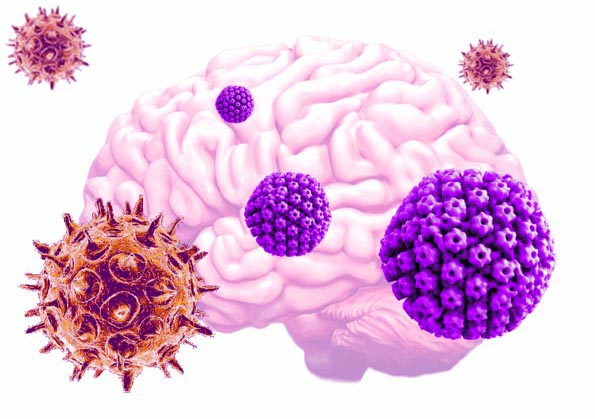Reactivation of Herpesviruses like Epstein-Barr virus and Cytomegalovirus could be causing Long COVID Issues
Nikhil Prasad Fact checked by:Thailand Medical News Team Aug 30, 2024 7 months, 2 days, 11 hours, 43 minutes ago
Medical News: As the world continues to grapple with the aftershocks of the COVID-19 pandemic, a significant portion of the population faces a new and mysterious challenge: post-acute sequelae of SARS-CoV-2 infection (PASC), commonly known as Long COVID. This condition, marked by persistent symptoms such as fatigue, neurological issues, and autonomic dysfunction, lingers long after the acute phase of COVID-19 has passed. Researchers from Semmelweis University and South Pest Central Hospital in Budapest, Hungary, are delving into the potential role of human herpesvirus reactivation in the development and persistence of Long COVID symptoms. This
Medical News report explores their findings, highlighting how herpesviruses like Epstein-Barr virus (EBV) and cytomegalovirus (CMV) could be key players in this ongoing health crisis.
 Reactivation of Herpesviruses like Epstein-Barr virus and Cytomegalovirus could be causing Long COVID Issues
Understanding Long COVID
Reactivation of Herpesviruses like Epstein-Barr virus and Cytomegalovirus could be causing Long COVID Issues
Understanding Long COVID
Long COVID is a complex condition that has left many patients and healthcare providers searching for answers. According to the World Health Organization (WHO), it is characterized by the persistence or emergence of new symptoms three months after the initial SARS-CoV-2 infection, with these symptoms lasting for at least two months without any other identifiable cause. However, definitions of Long COVID vary, and the range of symptoms is wide, making it a challenging condition to diagnose and treat.
Patients with Long COVID can be broadly categorized into three groups: those who were hospitalized with severe COVID-19, those with undiagnosed chronic conditions exacerbated by the pandemic, and those who experience prolonged symptoms after the acute phase of the virus. These lingering symptoms include fatigue, brain fog, sleep disturbances, memory issues, and autonomic dysfunction, among others.
Herpesvirus Reactivation: A Possible Culprit
One of the most intriguing aspects of the research conducted by the Hungarian team is the potential link between herpesvirus reactivation and Long COVID. Herpesviruses, including EBV and CMV, are known for their ability to remain dormant in the body for years after the initial infection, reactivating under certain conditions. The study suggests that the stress and immune dysregulation caused by COVID-19 might trigger the reactivation of these viruses, which in turn could contribute to the persistent symptoms seen in Long COVID patients.
The Role of Microvascular Dysfunction
SARS-CoV-2, the virus responsible for COVID-19, has a well-documented impact on the vascular system, particularly the endothelium, which lines blood vessels. This endothelial dysfunction is thought to be a significant factor in the development of Long COVID. Herpesviruses, especially CMV, also exhibit endothelial trophism, meaning they can infect and persist in endothelial cells, exacerbating vascular damage. This interplay between SARS-CoV-2 and herpesvirus reactivation could lead to a vicious cycle of endothelial damage, contributing to the chronic symptoms observed in L
ong COVID.
Neuroinflammation and Cognitive Impairment
Persistent neuroinflammation is another critical factor in Long COVID, particularly in relation to cognitive symptoms like brain fog and memory disturbances. Research has shown that PASC patients often exhibit elevated levels of pro-inflammatory cytokines in their cerebrospinal fluid, indicating ongoing inflammation in the central nervous system. The reactivation of neurotropic herpesviruses, such as EBV and HHV-6, could further exacerbate this neuroinflammation, leading to the cognitive impairments that many Long COVID patients report.
Immune Dysregulation and Autoimmunity
The immune system plays a crucial role in controlling herpesvirus latency, but the dysregulation caused by COVID-19 could weaken this control, allowing the viruses to reactivate. Additionally, herpesvirus reactivation could contribute to the immune dysregulation and autoimmune responses observed in Long COVID. For instance, EBV is known to be associated with several autoimmune diseases, including systemic lupus erythematosus (SLE) and multiple sclerosis (MS). The reactivation of EBV in Long COVID patients could potentially trigger or exacerbate autoimmune pathways, leading to a worsening of symptoms.
The Evidence So Far
While the exact mechanisms by which herpesviruses contribute to Long COVID are still being investigated, several studies have provided compelling evidence of this connection. For example, some PASC patients show elevated antibody titers against EBV and CMV, suggesting recent reactivation of these viruses. However, viremia, or the presence of virus in the blood, is not consistently detected in these patients, indicating that the reactivation might be occurring in specific tissues, such as the endothelium or the nervous system, rather than systemically.
Expanding Our Understanding
The researchers from Semmelweis University and South Pest Central Hospital emphasize the need for further studies to explore the role of herpesvirus reactivation in Long COVID. They suggest that large-scale cohort studies and detailed mechanistic investigations are essential to confirm these findings and to identify specific therapeutic targets. Understanding the interplay between SARS-CoV-2, herpesviruses, and the immune system could lead to the development of targeted treatments that mitigate the long-term impacts of PASC.
Conclusion: A Call for Continued Research
In conclusion, the potential role of herpesvirus reactivation in the pathogenesis of Long COVID opens new avenues for research and treatment. While the evidence is still emerging, the possibility that these dormant viruses could be reawakened by the immune dysregulation caused by COVID-19 is a compelling hypothesis. As researchers continue to unravel the complex web of interactions between SARS-CoV-2 and herpesviruses, the hope is that new, effective treatments will emerge to help those suffering from Long COVID regain their health and quality of life.
The study findings were published in the peer-reviewed journal GeroScience.
https://link.springer.com/article/10.1007/s11357-024-01323-9
For the latest COVID-19 News, keep on logging to Thailand
Medical News.
Read Also:
https://www.thailandmedical.news/news/new-study-highlights-the-role-of-autoimmunity-human-herpes-virus-6-reactivation-and-inflammation-in-long-covid
https://www.thailandmedical.news/news/breakthrough-in-anti-herpes-treatment-thailand-medical-researchers-at-chiang-mai-university-discover-potent-algae-extract
